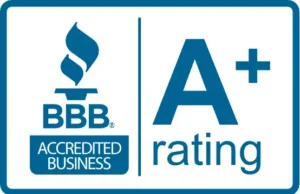Currently, Synchrony offers low monthly payments and many financing options. You can have your home repaired now and pay later with one of Synchrony's six monthly payment programs.
Home elevation in Channelview, located in Harris County, Texas, has become an increasingly important consideration for homeowners due to the area’s susceptibility to flooding. This coastal community has experienced significant flood events over the years, making elevation a crucial investment for protecting both property and family safety. Furthermore, many insurance companies now require or incentivize home elevation to reduce flood insurance premiums, making this improvement both a practical and financial necessity.
Channelview’s location along the Houston Ship Channel and proximity to the Gulf of Mexico places it in a high-risk flood zone. The community has faced multiple major flooding events, including Hurricane Harvey in 2017, which devastated countless homes throughout Harris County. Additionally, the area’s flat topography and aging drainage infrastructure contribute to recurring flood risks during heavy rainfall events. These factors combine to create an environment where traditional ground-level homes remain vulnerable to water damage year after year.
Elevating a home in Channelview offers numerous advantages beyond flood protection. Most notably, homeowners can achieve substantial savings on flood insurance premiums, often reducing costs by 60-70% or more depending on the elevation height. Moreover, elevated homes typically experience increased property values, as buyers recognize the long-term protection and reduced insurance costs. The elevation process also provides an opportunity to upgrade the home’s foundation system, ensuring better structural integrity for decades to come.
Professional home elevation involves carefully lifting the entire structure and installing a new, higher foundation system. Initially, specialized hydraulic jacks and steel beams are positioned to support the home’s weight during the lifting process. Subsequently, the existing foundation is removed, and a new elevated foundation is constructed to meet current building codes and FEMA requirements. Throughout this process, utilities including plumbing, electrical, and HVAC systems must be disconnected and reconnected, requiring coordination with multiple specialized contractors.
Selecting an experienced residential foundation contractor is critical for successful home elevation in Harris County. Allied Foundation specializes exclusively in residential services, focusing their expertise on homes rather than commercial properties. This residential focus allows them to understand the unique challenges homeowners face and provide tailored solutions for family residences. When evaluating contractors, homeowners should verify licensing, insurance coverage, and experience with elevation projects specifically in flood-prone areas like Channelview. Additionally, a reputable contractor will navigate the permit process, work with local building officials, and ensure all work meets both local and federal requirements for elevated structures in flood zones.
Proudly Serving Channelview for over 40 years!


